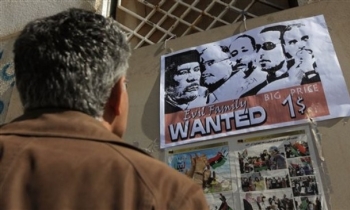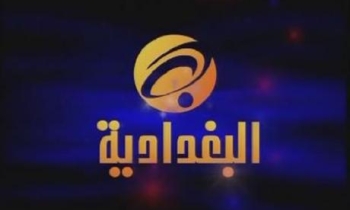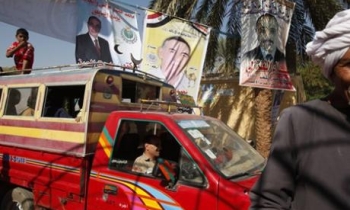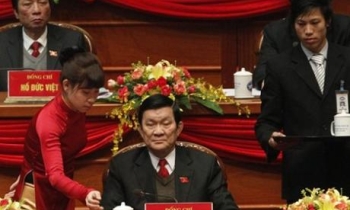Italian journalist Daniele Mastrogiacomo was released by the Taliban Monday after two weeks in captivity and days after his driver was executed, news agencies have reported.
Sources privy to the deal told local Pajhwok Afghan News that the La Repubblica journalist was handed over to Italian officials in the Hazarjuft district of the southern Helmand province at 5:10pm (local time).
"My head is still spinning but I am happy. I managed to get out of the situation and I thank everybody who helped me," the freed journalist told a TV channel owned by La Repubblica soon after his release. "This is the most wonderful moment of my life."
The journalist said he had been "bound hand and foot" by his captors and moved to 15 different locations "as small as sheep pens, in the middle of the desert.”
Mastrogiacomo, a journalist with 27 years of experience who was on assignment for the Italian daily, was abducted in southern Afghanistan. He was taken sometime on or after March 4, when he last contacted editors. A Taliban group was believed to be holding him and two assistants, Sayed Agha and Adjmal Naqshbandi. Helmand, the province where they were was seized, is in the midst of the heaviest round of fighting between US, NATO, and Taliban forces since the US-led invasion of 2001.
The journalist had planned to interview Taliban leaders in Afghanistan's restive south. Helmand, the country's opium centre, and neighbouring Kandahar province, are considered the most dangerous places in Afghanistan.
Shortly after being set free, Reporters sans Frontières (RSF) reported, Mastrogiacomo reached the Emergency hospital run by Italian doctor Gino Strada in Lashkargah, the capital of Helmand. "He arrived a free man and he is very well," said Strada, who played a key role in the negotiations.

The Taliban's military commander, Mullah Dadullah, told Reuters by satellite phone from an undisclosed location that the reporter had been freed after Afghan authorities released five senior Taliban officials, including his own brother.
The Taliban leaders released in exchange included Ustad Yasir (head of Taliban's cultural wing), Mufti Latifullah Hakimi (former spokesman), Mansoor Ahmad (Dadullah's brother) and two commanders Hafiz Hamdullah and Abdul Ghaffar.
"He is in the Emergency hospital and is in good health. I hope that in a few days we will be able to embrace him," Italian Prime Minister Romano Prodi told reporters in Rome.
The premier revealed that the operation leading to the release of the correspondent "had not been simple" and praised Afghan President Hamid Karzai for his "decisive" role in the affair. Italian Foreign Ministry officials confirmed that negotiations had involved the Italian and Afghan governments as well as Emergency. His release had been described as "imminent" after Karzai said in Berlin that he expected the journalist to be freed during the course of the day.
There were scenes of jubilation at the newspaper's headquarters in Rome, where editor-in-chief Ezio Mauro said his phone call with Mastrogiacomo had been the best he had ever received. Mastrogiacomo's wife Luisella told him by phone from Italy of the public shows of support in the journalists' homeland during his captivity — including a petition with about 96,000 signatures — and of Italian officials' efforts to free him.
"Luisella told him of Italy's role and he started to cry, to sob, he was really moved," the journalist's brother Alessandro said, according to Ansa news agency. Mastrogiacomo is expected in Rome by Tuesday evening.

The Taliban told Reuters on Sunday they had handed the journalist and his translator to local tribal leaders, but threatened to recapture him unless the Afghan government met all their demands. At that stage, the insurgents said the government had freed two of three rebels it had asked for.
Mastrogiacomo was accused of spying for British forces and Taliban officials said his driver Sayed Agha was killed on Thursday after a Taliban court convicted him of spying. Some analysts say that move, yet to be independently verified, was aimed at increasing pressure on Italy. Dadullah's spokesman Shahabuddin Atal told Pajhwok that no one had so far demanded body of Agha.
In a videotaped message delivered last week, the reporter appealed to the Italian premier to do everything in his power to secure his release.
Italy has 1,938 soldiers taking part in NATO-led Enduring Freedom operations in Afghanistan. Rome is believed to have rejected Taliban requests for Italy to withdraw its troops in exchange for Mastrogiacomo's release.
Mastrogiacomo is the third Italian national to be abducted kidnapped in Afghanistan since 2005 after photographer Gabriele Torsello (abducted in Helmand) and aid worker Clementina Cantoni (abducted in Kabul). All three are believed to have been released after negotiations with the government.
"The initiatives undertaken on Mastrogiacomo’s behalf in Italy and Afghanistan contributed to this fortunate outcome," RSF said. "Nonetheless, it is regrettable that his release came about only after the death of his Afghan driver and the release of Taliban prisoners. We call on the Taliban leaders, especially Mullah Dadullah, to once and for all abandon attacks on the press and kidnappings of journalists, which are contrary to humanitarian law."
“We are relieved by reports that Mastrogiacomo and Ajmal have been freed and are in good health,” said Committee to Protect Journalists (CPJ) Executive Director Joel Simon. “Their abduction and the tragic killing of their driver Agha underscore the rising danger to reporters working in Afghanistan.”









